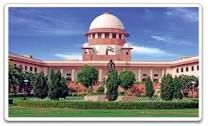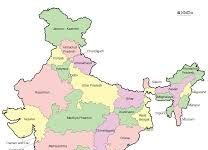http://www.firstpost.com/india/neet-supreme-court-entrance-tests-medical-entrance-2764078.html
NEET: The Supreme Court’s stipulation is a welcome one
The Supreme Court has made its intentions clear. It wants to go ahead with the National Eligibility cum Entrance Test (NEET) examinations for all MBBS courses across the country from this year itself. The only exception will be the entrance examinations to the AIIMS (All India Institute of Medical Sciences). Why this should be left out is perplexing. Ideally, there should be one rule for everyone. Multiplicity of rules only encourages confusion and even corruption.
Ask many educationists. They will point out the irony behind the protests of some state governments. The protesting states want the Supreme Court stipulation, that NEET exams should becoming mandatory from this year itself, to be deferred. “Look at the list of protesting states,” points out one educationist. “Why is it that only those states that have private medical colleges are the ones who are protesting?”
And it is no secret that the private medical colleges conduct their own exams and charge around Rs 40-50 lakh per admission. Most of these colleges are backed by some very powerful politicians. Is that why these states want deferment of the Supreme Court’s diktat?
The fact is that the students have had a raw deal till now. “There are almost 72 different entrance examinations for MBBS admissions all over the country,” adds another educationist. “Thus each student has to appear for 10-12 examinations in order to ensure that he or she has a good chance of securing admission with a medical college. And this is even after their willingness to pay capitation fees.”
Some such malpractices have already been exposed in the media through sting operations. Some of the private medical colleges do not have either the teachers or the facilities (sometimes both) to offer decent medical education to students. Yet, thanks to their powerful connections, the promoters of these colleges go scot-free.
Consider the number of examinations that students must prepare for in the state of Maharashtra alone. There is the CET (Common Entrance Test). Then there is the Associate CET (for a clutch of 12-15 medical colleges which have not accepted the CET). You also have the AIPMT (All India Pre Medical Test). As stated before, there is also the test that AIIMS insists on. You also have many private medical colleges which have their own separate entrance examinations. Some of them use these examinations to tweak the admission eligibility norms for students. And there is the Pondicherry examination, commonly referred to as the JIPMER test (for the Jawaharlal Institute of Post Graduate Medical Education & Research). Finally, there is the entrance examination for CMC Vellore which is one of the premier medical institutes in the country.
“Why should a student be compelled to take all these tests? Why should he or she be fleeced by so many examination bodies? Why should the rest of India suffer just because some states want medical colleges to make some more money for one more year?” is the common refrain of most informed people who have looked at the worsening educational practices adopted by medical colleges in India.
In fact, they believe that the Supreme Court should make the NEET compulsory for all professional colleges. “Today, the judgement covers only medical colleges. Why not engineering colleges as well?” is what one teacher asks. Look at the practice overseas. The GRE (Graduate Record Examination) in the US is common to all students. And each discipline has just one qualifying examination for the entire country, sometime for more than one country. Why should India not adopt such practices?
The fact is that – just as with medical colleges – students aspiring to be engineers have to appear for as many as a dozen examinations to minimize their chances of losing out an admission opportunity. Though the capitation fees for engineering colleges is not as high as those for medical colleges, there are stories about such cash demands being made.
“Why is it that the JEE (Joint Entrance Examinations) Mains for admission for all IITs has been adopted by non-BJP states like Orissa, but not by BJP ruled states like Maharashtra? Clearly, the lust for money is greater than a respect for fair-play at examinations,” a teacher remarks.
 To learn more about the controversy, you can read this article.
To learn more about the controversy, you can read this article.












































COMMENTS